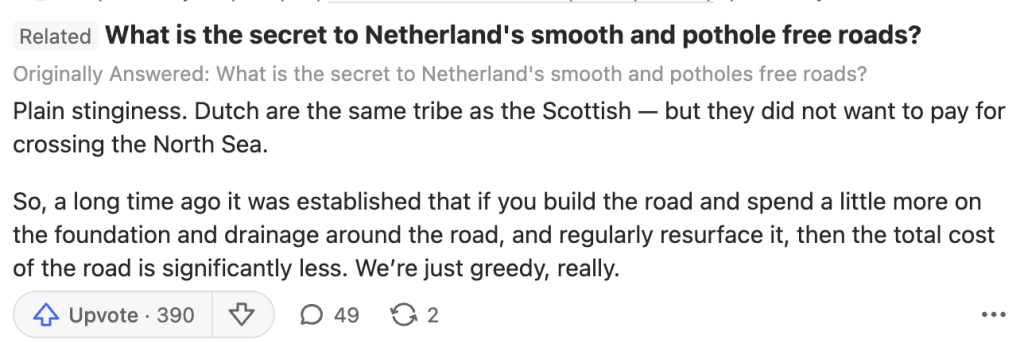When I first moved here 6 years ago I spent a lot of time walking the streets of Utrecht. Every time I passed this particular promotional banner it would make me feel a weird, new emotion that I’d never felt in the UK…

It loudly offers two pairs of jeans for the price of €149.95. If a martian’s first impression of human fashion retail was this banner he would be forgiven for thinking that ‘JEANS’, whatever they are – normally cost about €250 each.
This wound me up because I’ve never spent more than about €40 on one pair of jeans, and it made me feel gaslit – like all the jeans I’ve ever bought were just sham, knock off, fake jeans. Made me feel like if I truly understood quality jeans, I would know that 2 for €150 was an offer worth shouting about.
And thats the point of the ad – there is no other substance to it, no guarantees of quality, no brands or logos for me to recognise, just a high price and a feeling that I might need to shift my standards and expectations to fit in here (to doe normaal).
Now years have gone by since I last saw this banner, but I was reminded of it this week when I scrolled through my facebook timeline to see this ad for ‘HiFi Klubben Nederland’:

The ad shows me a pair of speakers that if I had to guess, could cost anything from €14 to €400. It proudly shows me, in red and bold font that these speakers in fact cost ten thousand euro. In the smaller print, ‘HiFi Klubben’ offers ‘free delivery’ when I spend over €20…
I’m being gaslit here right?! What is the psychology here and is it working on people. Why is this style of ad not something I’ve ever seen in the UK?
You might think this is ‘anchoring’ – where a merchant shows you a high price first, so that everything you see afterwards seems like a bargain. But it can’t be anchoring, anchoring works when we’re already looking to buy something and ready to check out the assortment. This is an ad – its their one chance to get my attention as I doom-scroll.
The proposition is this: by positioning this item at a price much higher than you would expect, but also as a deal – we’re showing you that there’s a level of quality that doesn’t yet fit into your current world view. In doing this it becomes aspirational without having to tell you anything else about the product, and makes the customer feel that they are missing something.
We’re flattering you by assuming you would already know that 2 pairs of our jeans at €150 is a good price. We think you’re the kind of guy who knows that the ‘Bowers and Wilkins 805 D4 Compact speakers’ are an absolute steal at €10k. And if you didn’t know that? Then our-bad, maybe you’re not the kind of customer we’re looking for.
I’m most likely projecting here, but I feel these ads work by feeding a superiority complex in a very blunt way. There is something inherently superior about a particular Dutch thirst for quality. Like a Swiss watch or the Stella Artois slogan ‘Reassuringly Expensive‘.
But its not frugality, or an appreciation of quality that is at the heart of this superiority – its intelligence, its being clever. This is the Dutch belief that you do not have to spend more to get better quality. The idea is that you will pay more today but the quality is so good you will actually pay less in the long run (buy cheap – pay twice). So by buying smart you get better things and you save more money – win win.
The attitude is best shown here in this Quora answer about why Dutch roads are so smooth:

So turns out they’re just really clever…
Leave a Reply